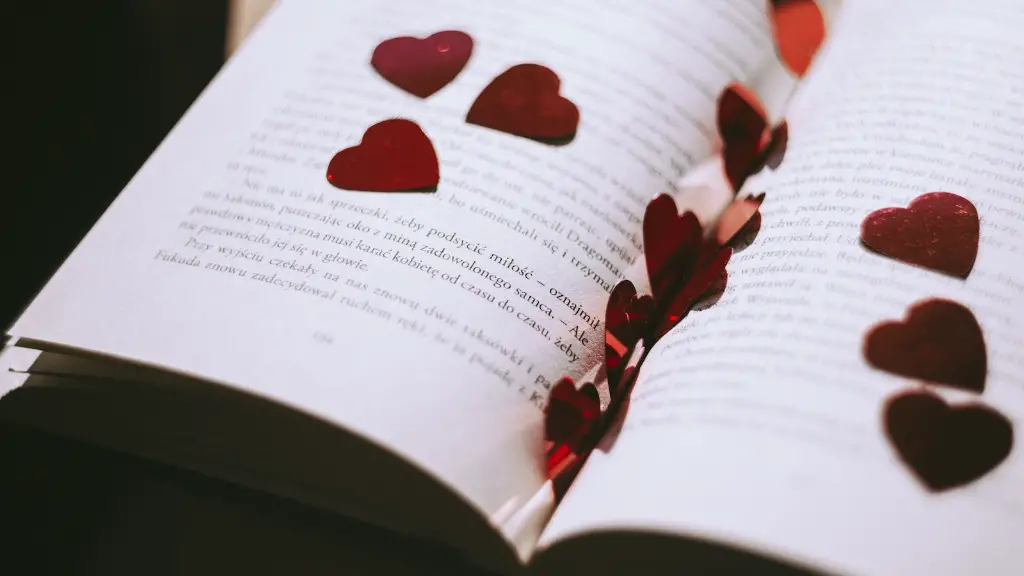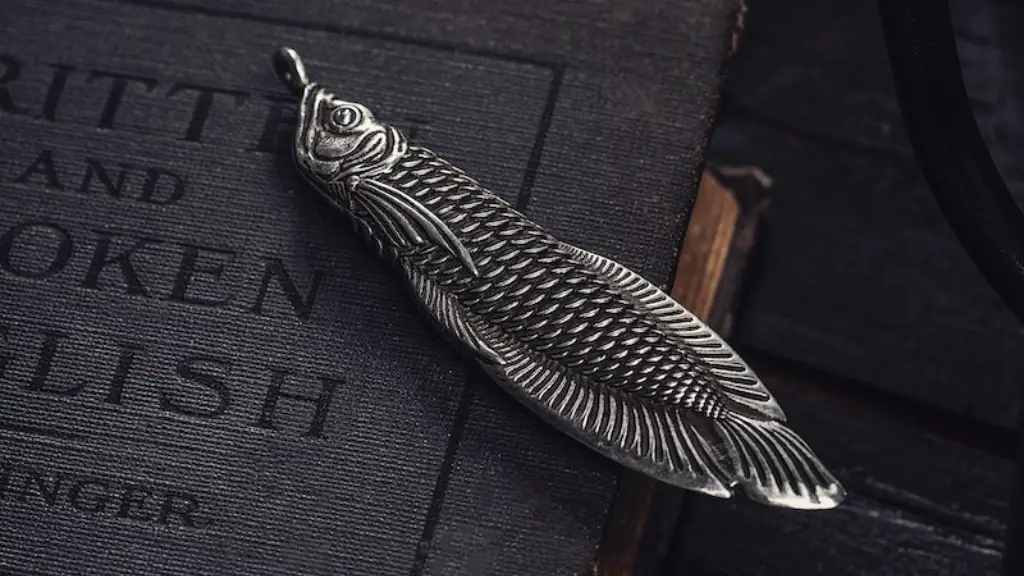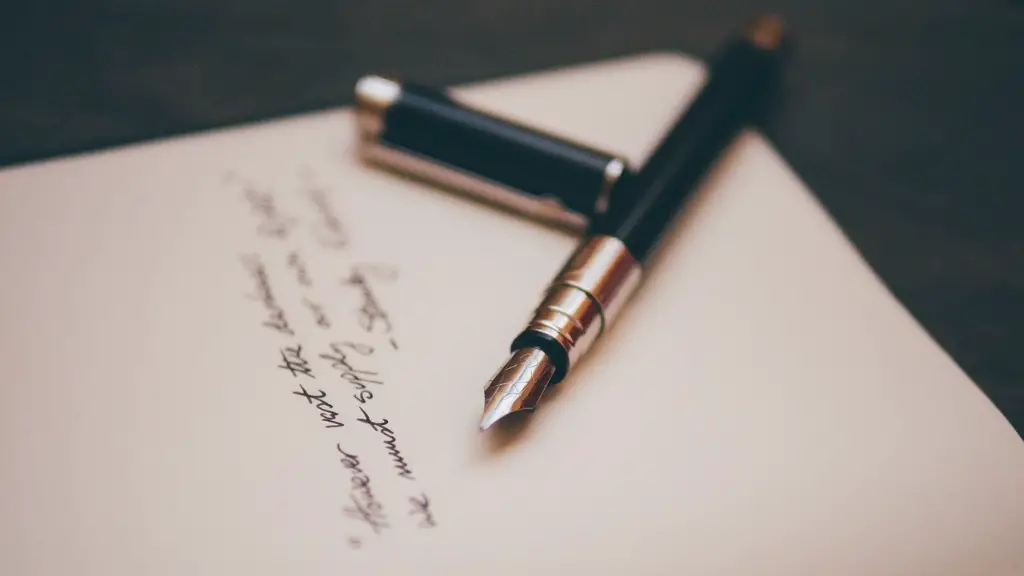The story of poetry can be tracked back to Ancient Mesopotamia and their cuneiform culture. Their oldest surviving fragments of poetry, believed to have been composed by the poet Enheduanna as early as 2300 BCE, were written in the Akkadian language, and predate Homer’s Iliad by almost two and a half millennia. But when did poetry, as an art form, actually begin?
The story of poetry is complex and there is no definite answer as to when it began; experts disagree as to when modern concepts of poetry began to take shape. Some suggest that it is impossible to pinpoint the exact moment when poetry began, while others believe that certain milestones should be used to mark the evolution of the poetic form.
The Ancient Greeks are often credited with creating many of the poetic devices commonly seen in our society today. From figures of speech to rhyme and meter, the Ancient Greeks are thought to be responsible for making poetry accessible to both readers and writers. For example, the Greeks set the foundation for introducing meter and rhythm through their work in theatrical plays, which are also thought to be some of the earliest forms of poem structure.
The first major poet to emerge from the Ancient Greeks was Homer, who wrote the two longest surviving works of Ancient Greek literature: The Iliad and The Odyssey. Homer’s works served as the foundational texts of Ancient Greek poetry, forming the basis of subsequent poetic works. Homer’s poetry is characterized by its vivid imagery and elaborate use of poetic devices. While Homer’s poems vary in terms of their structure and subject matter, they share a common focus on storytelling, which was a key feature of Ancient Greek poetry.
The Romans are also credited with making significant contributions to the evolution of poetry. The Latin language, which was used by the Romans, was instrumental in the development of Latin poetry. Roman poets such as Virgil, Catullus, and Ovid are considered to be some of the most influential poets of the period. Roman poetry was characterized by its engagement with themes of love, duty, philosophy, and politics.
Modern poetry can be traced back to the Middle Ages and the Renaissance period, when poets began to employ the tools of rhetoric to create more complex works of art. The works of Dante, Chaucer, and Shakespeare were some of the most significant contributions to the evolution of poetry during this period. These poets are credited with introducing ideas of symbolism and psychological depth, which are still evident in modern poetry today.
The 18th century marks the beginning of the Romantic period, when British poets such as William Wordsworth, Samuel Taylor Coleridge, and William Blake began to experiment with narrative forms and deviated from the conventions of the Classical poetic form. During this period, the nature of poetic expression began to change drastically, and British Romantic poets formed the basis of what we now consider to be “modern” poetry.
The Influence of the Industrial Revolution
The Industrial Revolution had a profound impact on the development of poetry. As societies moved away from agricultural-based economies and into cities, people had more time and resources to devote to the arts. Poets of this era were exploring how the human condition and the changes brought about by industrialization were affecting the world around them. This period saw the emergence of poets such as Walt Whitman, Emily Dickinson, and Robert Frost. They wrote about the psychological and social aspects of modern life, and their work is thought to have ultimately shaped the development of modern poetry.
The Influence of 20th Century Poets
Famous 20th century poets wrote about a variety of topics and explored various forms of expression. T.S. Eliot, William Carlos Williams, and Langston Hughes expanded on the topics of identity, love, and culture while, at the same time, exploring the possibilities of modern structural forms. These poets sought to disrupt the traditional conventions of poetry and provided readers with a glimpse into the complex and diverse nature of the modern world.
Modern Poetry Moving Into the Future
By the end of the 20th century, poetry began to shift to include a much more diverse range of topics, including topics that addressed issues of race, gender, and sexuality. The rise of social media has also provided a platform for poets to share their work and find new audiences for their work. In recent years, we’ve seen the emergence of spoken word poetry or “slam” poetry, which has become increasingly popular amongst young people. This form of poetry has helped to bridge the gap between traditional and contemporary poetic forms and has allowed poets to use their voice to explore a range of issues.
The Influence of Technology
Poetry has also been impacted by advances in technology. The Internet has allowed for a new generation of writers to share their work with a global audience, while mobile apps and websites such as Poetize and Verse have made it easier for writers to upload, store and share their work. These technological advances have made it easier than ever for poets to explore a range of topics, experiment with form, and find new ways to engage the public in their craft.
The Impact of Poetry
The term ‘poetry’ encompasses a wide range of work and styles. However, what remains consistent is the emotional impact it has on its readers. Poetry has the ability to capture a person’s innermost thoughts and feelings, in a way that allows the reader to relate to the poem on a personal level. It has the power to make the reader think, feel and question, as well as providing an outlet for self-expression that can be of great comfort and benefit.
The Future of Poetry
whether or not the art of poetry will continue to evolve, there is no doubt that it will remain an integral part of human culture and the art of storytelling. Technology may influence the way in which poetry is shared and produced, but the actual form and content of poem remain untouched. As long as there is a need for stories, poetry will continue to evolve and remain a powerful art form.


